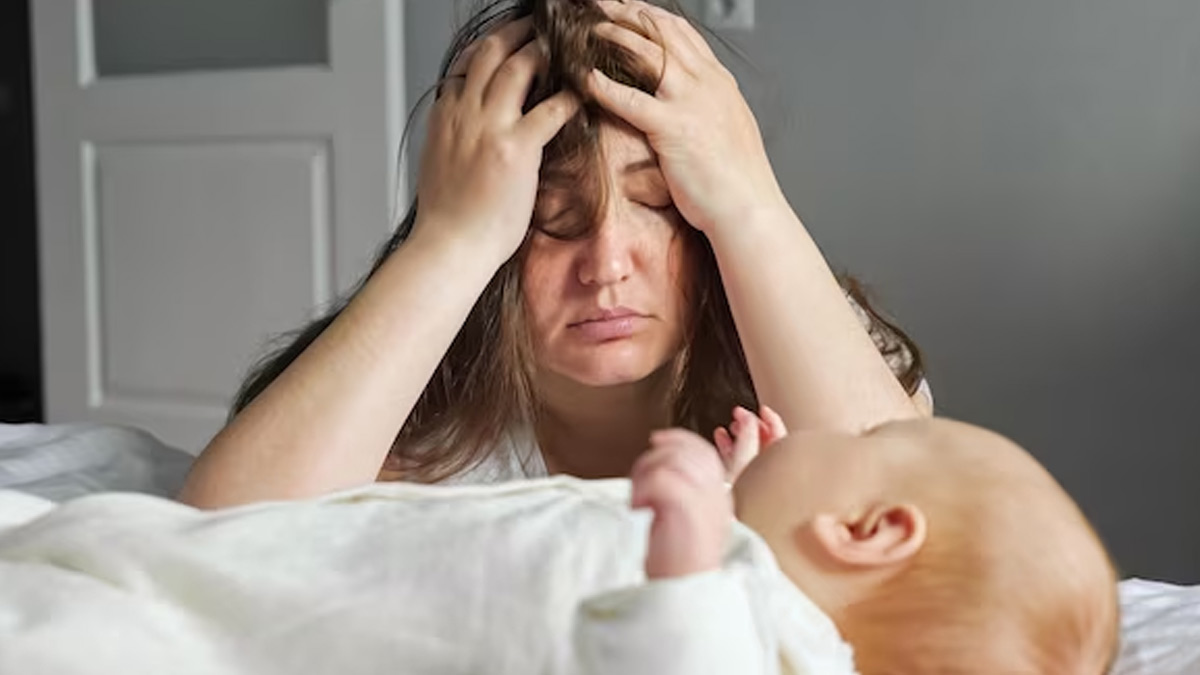
Postpartum depression (PPD) is a prevalent mental health condition that impacts a significant proportion of women following childbirth. It is marked by the enduring and pervasive experience of emotions, such as sadness, hopelessness, and emotional distress, typically manifesting within the initial year after the birth of a child. PPD represents a complex and often misinterpreted issue, warranting consideration of several key aspects. We spoke to our expert Dr Sakshi Goel, Senior Consultant, MBBS, MS Obstetrics and Gynaecology, Madhukar Rainbow Children’s Hospital, who listed signs of PPD, its risk factors, and the importance of seeking support.

According to the Journal of Education and Health Promotion, PPD is a crippling mental condition, and its prevalence ranges from 5-60.8% globally. In severe cases of illness, profound feelings of hopelessness can jeopardize one's life and even result in suicide. This factor contributes to 20% of maternal deaths in the postpartum period. Mothers delivering infants weighing less than 1500 grams are at a substantially elevated risk, with the likelihood of experiencing PPD being 4-18 times greater as compared to others.
Symptoms Of PPD

Dr Goel listed the symptoms of PPD as follows:
- Persistent Sadness: Dr Goel said, “A prominent characteristic of PPD is a profound and enduring sadness that appears unshakeable. This sadness can be overwhelming and unrelated to specific triggers.”
- Loss of Interest: Mothers with PPD may lose interest in activities they once enjoyed, including caring for their newborn.
- Fatigue: While exhaustion is common for new mothers, PPD-related fatigue is often more profound and unrelenting, making it difficult to perform daily tasks.
- Changes in Appetite: Some women with PPD may experience changes in appetite, leading to significant weight gain or loss.
- Sleep Problems: Insomnia or excessive sleep, beyond what is normal for a new mother, can be a sign of PPD.
- Irritability or Anger: New mothers with PPD may become easily irritated or even hostile, often without a clear reason.
- Difficulty Bonding with the Baby: Struggling to connect with or care for the newborn is a common symptom. Mothers may feel emotionally detached from their babies.
Risk Factors For PPD

According to StatPearls, the risk factors for PPD as as follows:
- Psychological: A history of depression, anxiety, PMS, negative feelings towards the baby, gender preference, and past sexual abuse can contribute.
- Obstetric Risk: Complicated pregnancies (emergency caesarean sections, meconium passage, etc.) and low haemoglobin levels increase risk.
- Social Factors: Insufficient social support, domestic violence, and smoking during pregnancy are causative factors.
- Lifestyle: Diet, sleep patterns, physical activity, and exercise play a role. Vitamin B6 impacts mood. Reduced sleep, lack of exercise, and unhealthy habits increase PPD risk.
Seeking Help and Support

Dr Goel advised, “If you or someone you know is experiencing these symptoms, it's essential to seek help promptly. PPD is a treatable condition, and early intervention can significantly improve the prognosis. Doctors, therapists, and support groups can provide valuable assistance and emotional support.”
Dr Goel highlighted, “It is essential to grasp and identify the indications and manifestations of PPD to safeguard the welfare of new mothers and their families. Providing assistance, understanding, and access to suitable treatment can empower a mother to conquer PPD and approach motherhood with increased confidence and resilience, finding joy in the journey.”
[Disclaimer: The information in this article is shared by a registered healthcare professional and is for informational purposes only. Hence, we advise you to consult your expert if you notice any symptoms of PPD for a proper treatment.]







